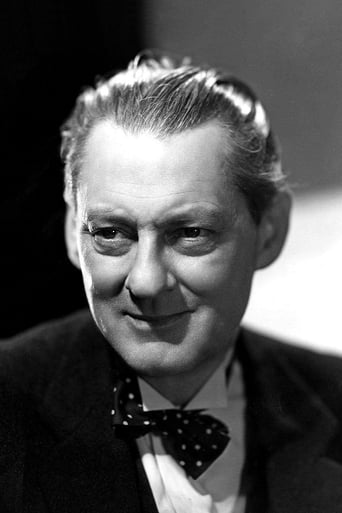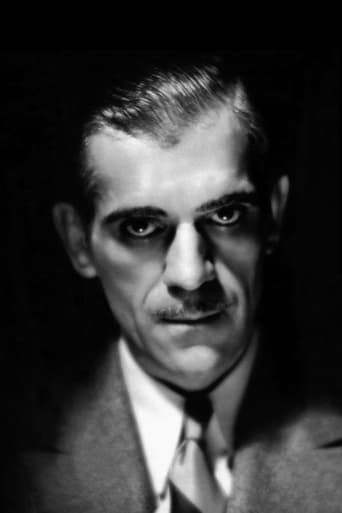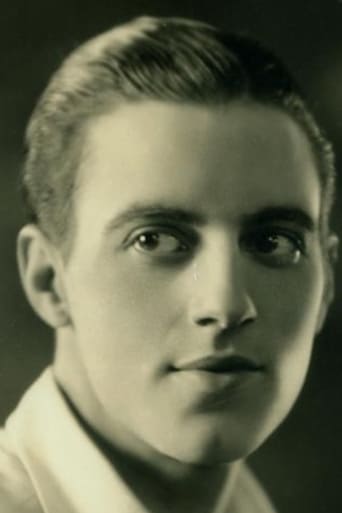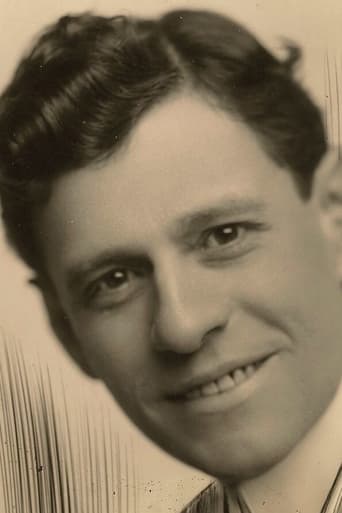UnowPriceless
hyped garbage
Spoonatects
Am i the only one who thinks........Average?
Salubfoto
It's an amazing and heartbreaking story.
Nicole
I enjoyed watching this film and would recommend other to give it a try , (as I am) but this movie, although enjoyable to watch due to the better than average acting fails to add anything new to its storyline that is all too familiar to these types of movies.
hte-trasme
Contrary to the title and to popular belief, this 1926 feature is not based on or inspired by Edgar Allan Poe's poem "The Bells," which, truth be told doesn't offer much literal plot material for a film adaptation. Instead it is based on a stage melodrama very popular in the nineteenth century and the first part of the twentieth. From what we can tell here, despite its fall from popularity, it was so popular because it is damn good as a melodrama -- a disturbing and tense psychological tale of the motives for a murder and the consequences of that same murder.It is most famous now as an early appearance of Boris Karloff in a significant macabre role, but it is really a vehicle for the talents of Lionel Barrymore, who gives as extraordinary performance as Mathias, the innkeeper who wants to be generous with credit despite the wishes of his wife and father-in-law so he can win enough goodwill to become Burgomaster, but who is driven to murder to pay his debt and then tormented with guilt. He gives a very subtle and multidimensional performance as Mathias, constantly (and increasingly) worried, but still charming. He's perfectly underplayed by still expressive early, so it is so much more effective later when he plays up.It's essential that he manages to convey the innkeeper's tortured thoughts about his debt before the murder itself, because no time is devoted to the decision itself, and Barrymore's acting makes it unnecessary.Karloff, in a smaller but important role as the mesmerist who haunts Mathias with his supposed ability to cause criminals to confess. He's very powerful, magnetic, and harrowingly weird. As a mysterious man who may or may not have dangerous powers of the mind, you can't get much more effective.The direction sometimes seems a little plain in a few of the scenes, but this is more than made up for in a good number of symbolic shots (plain objects coming to resemble nooses) and trick scenes that memorably show what is inside Mathias' mind (blood appearing on his hands as he retrieves some of his money, a argument with a spectral appearance of his dead victim).As this is a silent film adaptation of a stage play, however, some of the talkiness inherent in the stage medium and impossible in the silent film medium has to come through some outlet. This leads to some unnecessarily wordy title cards that tend to distract. In addition, much of the acting, apart from that of Barrymore and Karloff, is overplayed to an unnecessary degree that begins to detract. The ending, while goodhearted, is indeed quite rushed, and leaves several plot threads hanging. It would have been much more satisfying if the film had been extended past this point for a little while.This is a flawed but still very memorable film with elements that make it highly compelling, and one that will hold up very well for most viewers.
gftbiloxi
Although more than one promoter has been quick to exploit the idea that THE BELLS was inspired by the 1848 Edgar Allen Poe poem of the same name, nothing could be further from the truth. Originally created in 1867 as LE JUIF POLONAIS by the incredibly prolific French dramatists Emile Erckmann and Alexandre Chatrain, it was translated, adapted, and re-titled THE BELLS by English playwright Leopold Lewis. Actor Henry Irving's 1871 performance as Mathais was a sensation on the English stage, and in consequence the play was widely performed in the Victorian era.As the 20th Century began, the stage version of THE BELLS was still so well-remembered that it was adapted to the silent screen at least six times. Little, if any, information is available about these adaptations--with a single exception: the 1926 film starring Lionel Barrymore (1878-1954), brother of stars John and Ethel Barrymore and a noted artist in his own right.Modern audiences will likely find the story clunky and obvious, but in 1926 it, like the original stage version, was considered a great shocker. Mathais (Barrymore) is an inn-keeper who is in debt to the sinister Gustav von Seyffertitz (Jerome Frantz), who seeks to leverage Mathais' inability to pay into a marriage with Mathais' daughter Annette (Lola Todd.) In order to pay off the debt and secure his bid for the position of burgomeister, Maithas kills and robs a wealthy merchant who stops at the inn on Christmas--and is thereafter tormented by his own guilt and most particularly by the sound of bells, which recall the sleigh bells his victim held when killed.Today the film is best known for Boris Karloff, who appears in the small but distinctly creepy role of "The Mesmerist;" even so, it is really Lionel Barrymore who endows the thing with interest. Acting styles of the early silent era tended to be very broad, and THE BELLS OFFERS scope for a great deal of scenery chewing, but Barrymore is comparatively restrained in his approach and the entire cast follows suit. In this sense, the film is quite watchable. At the same time, however, the story has been reworked so many times that even here it feels excessively old fashioned and slightly tired.The print offered here is hardly pristine, but it is very good, and the score is also very well done. The DVD presents a short 1922 French film fantasy, THE CRAZY RAY, which is mildly entertaining as well. But for all the history and celebrated names involved, THE BELLS is a competent film rather than a good or great one, and its appeal will be largely confined to hardcore silent movie fans. Recommended to them.GFT, Amazon Reviewer Comment | Permalink
ferbs54
"The Bells" is a very fine silent movie from 1926 that is not at all creaky and should manage to impress modern-day viewers. As revealed in my beloved "Psychotronic Video Guide," this story was, remarkably, filmed no less than four times prior to this 1926 version, and three times subsequently in 1930s Europe! It made a huge star of British actor Henry Irving in 1872, when performed on stage. Anyway, the plot is a simple one, and concerns family man Mathias (here played by the great Lionel Barrymore, looking younger than you've probably ever seen him), who, in order to pay off his mortgage debt, kills a wealthy Polish Jew merchant for the gold in his money belt. He soon goes insane with guilt, and begins to hallucinate the ghost of the Polish Jew, hear the bells of his victim's sleigh, dream of himself on trial in court and, in one impressive scene, play cards with the murdered man. It is an excellent performance from Barrymore. The FX in this film are pretty fine, too, and director James Young makes the film visually striking by filling his frame with great detail and constant movement. And Boris Karloff, six years before his Frankenstein breakthrough, is memorable in his small role as a freaky-looking mesmerist. To add to the viewer's pleasure (at least on the disc that I just watched), the fine folks at Image Entertainment have given us a very crisp- and clean-looking DVD, with beautiful color tinting. (I'm still not sure why I despise colorization for old talkies but don't seem to mind it for silents!) Two problems, though: The film ends kind of abruptly, and although the picture is widely quoted as being 92 minutes long, the film I saw last night was just a shade over 70 minutes in length. What's up with that?
Ryan Louis
After reading the Edgar Allen Poe poem, this film seems like an adequate representation of its original moods and feelings. Plus, you've got great talents like Lionel Barrymore and Boris Karloff (even though he has a small role) moving this picture down its macarbe path. So, if you enjoy silent films, this one will probably float your boat. The only complaint I have is in the the 1998 release's choice of music. It seems overly cheesy to be associated with Edgar Allen Poe. Although, the use of silence and sleigh bells adds a lot to the impact of the film. Intriguing with a good pace (plus, it's only 67 minutes, so if you can't sit through long silent films like "Birth of a Nation," then this one is for you.).





